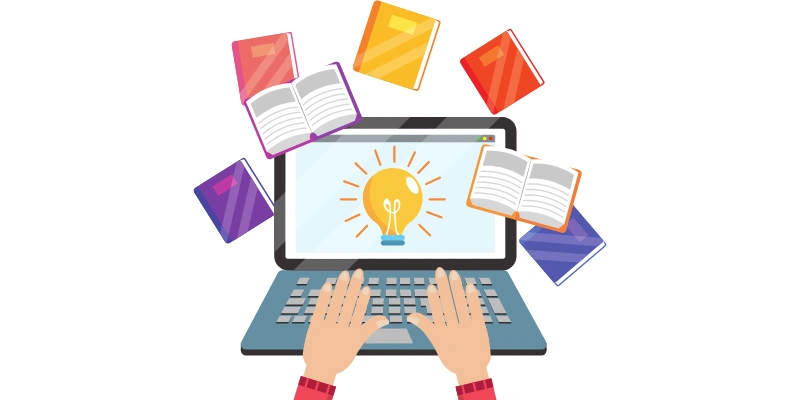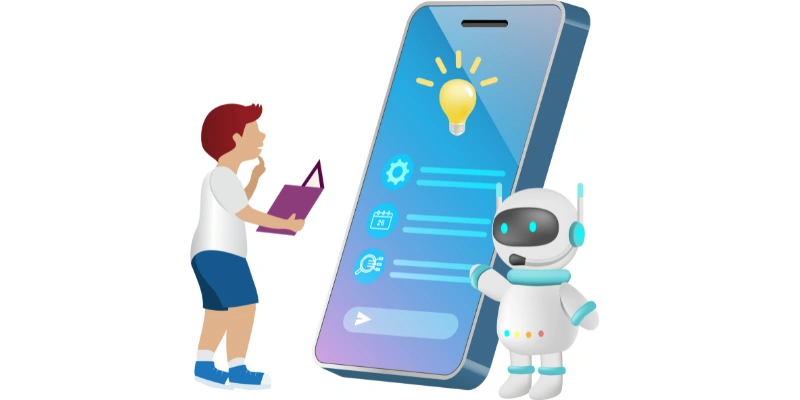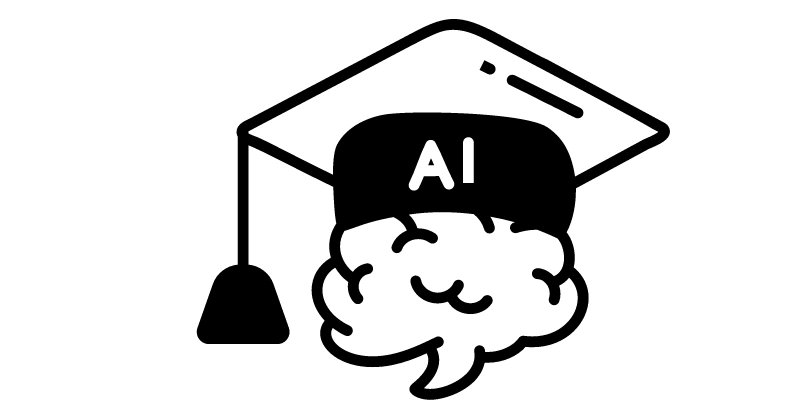
Imagine a classroom where every student has a personal AI tutor tailored to their needs. This is the promise of the impact of AI in education, offering personalised learning experiences like never before. However, there are concerns about students becoming overly reliant on AI, potentially losing critical thinking skills. Additionally, educators must adapt to rapidly changing technologies, which can be daunting. This piece will cover five key pros and cons of AI in the education sector, providing a balanced perspective on its impact. Whether you are an educator, student, or parent, this guide will help you navigate the future of learning.
Pro: Personalised Learning Experiences
Personalised Learning with AI

One of the most significant advantages of AI in education is its ability to provide personalised learning experiences. Unlike traditional classroom settings, where one size fits all, AI can tailor lessons to meet the needs of each student. By analysing data on a student’s performance, learning style, and pace, AI can adjust the difficulty level of tasks and provide targeted resources that enhance understanding.
Benefits:
- Customised Learning Paths: AI ensures that students learn at their own pace, preventing frustration from being overwhelmed or boredom from not being challenged enough.
- Diverse Learning Styles: AI tools can incorporate multimedia elements—such as videos, quizzes, and interactive simulations—to cater to different learning preferences.
Example: Imagine an AI-based learning app that detects a student’s struggle with a specific math concept. The app can immediately adjust the content, offering additional practice problems, explanatory videos, or interactive exercises, helping the student grasp the concept more effectively.
Con: Potential for Diminished Critical Thinking Skills
AI and Critical Thinking in Education

While AI offers many educational benefits, there is a risk that over-reliance on these tools could diminish students’ critical thinking abilities. When AI provides quick answers or solves problems, students may not engage deeply with the material or develop their problem-solving skills.
Impact:
- Surface-Level Learning: Students might skim over concepts and rely on AI-generated solutions, leading to a superficial understanding of the material.
- Reduced Problem-Solving Skills: Constantly depending on AI can limit students’ opportunities to practice and enhance their critical thinking and independent problem-solving skills.
Example: Consider a scenario where AI completes a homework assignment for a student. While this may save time, it deprives the student of the learning process, reducing their ability to think through problems and come up with their solutions.
Pro: Enhanced Accessibility and Inclusion
AI for Accessible Education

AI is a powerful tool for making education more inclusive and accessible. For students with disabilities or those who face language barriers, AI can provide tailored support that traditional educational methods may lack.
Benefits:
- Support for Disabilities: AI can assist students with visual or hearing impairments through text-to-speech or speech-to-text technologies.
- Language Support: AI-powered translation tools can help non-native speakers understand course materials, making learning more inclusive.
Example: A student with a visual impairment can use AI-driven text-to-speech software to listen to textbooks, while a student who speaks a different language can use AI translation tools to understand the material, ensuring they both have equal access to learning.
Con: Reduced Human Interaction
Impact of AI in Education vs. Human Interaction in Classrooms

The rise of AI in education could lead to a decrease in human interaction, which is a crucial component of learning. Personal connections with teachers and peers play a significant role in developing social skills and emotional intelligence.
Impact:
- Loss of Social Skills: Less interaction with teachers and peers may hinder the development of essential social and communication skills.
- Emotional Support: Teachers provide emotional support and motivation, which are critical for student success. AI lacks the empathy and personal touch that human educators offer.
Example: A student receives automated feedback on their essay from an AI tool. While the feedback is instant, it lacks the nuanced understanding and encouragement a teacher would provide, potentially making the learning experience feel impersonal.
Pro: Efficient Administrative and Grading Processes
Impact of AI in Education Administration

AI can significantly streamline administrative and grading processes, allowing educators to focus more on teaching and less on paperwork. Automating these tasks can lead to a more efficient educational environment.
Benefits:
- Faster Grading: AI can quickly grade multiple-choice tests and even provide initial assessments on written assignments, saving teachers time.
- Resource Management: AI can help schools manage resources more effectively, from scheduling classes to maintaining student records.
Example: AI software can instantly grade quizzes and exams, providing immediate feedback to students and freeing teachers to focus on more complex, qualitative assessments and personalized teaching.
Con: Data Privacy and Ethical Concerns
AI and Data Privacy in Schools

As the impact of ai in education becomes more integrated, concerns about data privacy and ethics are rising. AI collects and processes vast amounts of student data, which could be vulnerable to breaches or misuse.
Impact:
- Data Breaches: Sensitive student information could be at risk if AI systems are not adequately protected.
- Ethical Issues: The way student data is collected, stored, and used raises ethical questions about consent and data ownership.
Example: Schools using AI platforms must ensure they have robust data protection measures. Concerns arise when student performance data is shared without consent, potentially leading to misuse or discrimination.
Conclusion: Navigating the Future of AI in Education
The impact of ai in education is transforming by providing personalised learning, improved accessibility, and increased efficiency. These advancements make education more inclusive and customised, supporting students with diverse needs and allowing teachers to focus on meaningful interactions. Nevertheless, challenges persist, such as the risk of reduced human interaction and concerns regarding data privacy. While AI offers valuable tools, it cannot replace the empathy and personal connection that human educators provide. It is crucial to balance the benefits of AI with its limitations to ensure that it enhances, rather than detracts from, the learning experience.
To discover how AI can enhance grading efficiency while maintaining educational integrity, visit Graidy Tech and explore our AI Grading Software. Embrace the future of education with confidence and security.
Lesna Naidoo is an energetic office manager at Custom Group.tech. She is passionate about content creation and regularly shares insights through weekly blogs. Her focus is on helping businesses enhance efficiency and build lasting customer relationships.